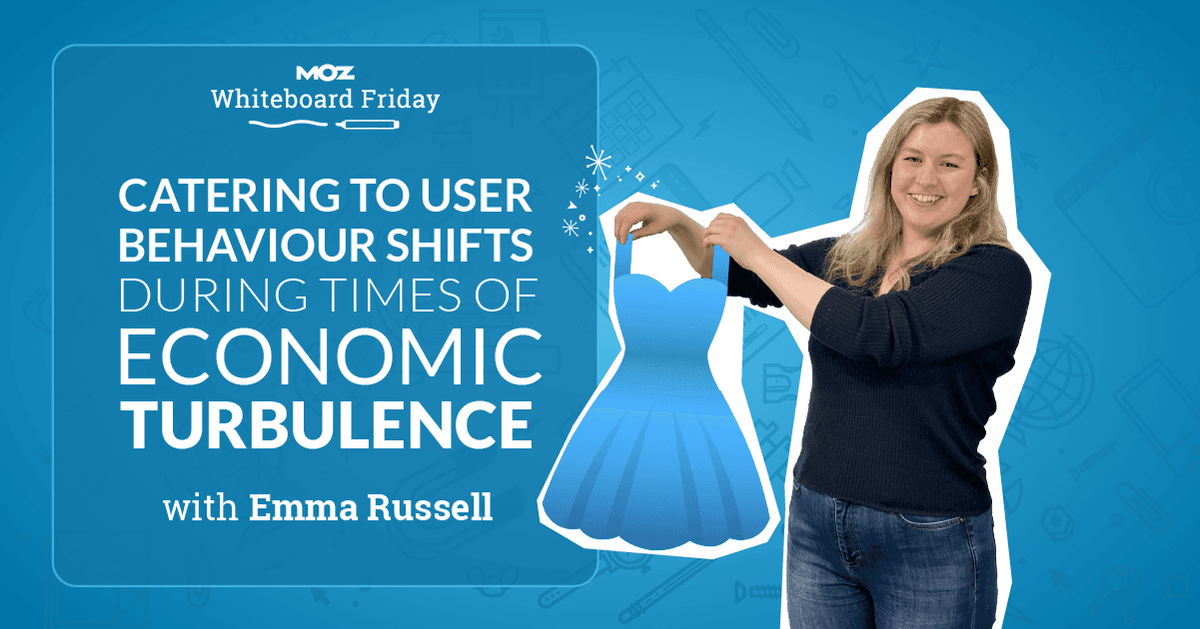If we think about organic traffic and SEO and how we can cater to this search behavior, dresses have a really high search volume. Then you’ve got blue dresses, which have about 18,000 searches a month, and blue work dresses, which have 210 searches a month. So, there is still a good amount of search volume.
When these are all built up together, so blue work dresses, black work dresses, and then you’ve got designs, patterns, this is actually a lot a search volume. But many e-commerce sites don’t actually index that deep into their site. In fact, sometimes people will just index dresses and then rely on filter parameters to get to blue dresses and blue work dresses.
Some sites, and if you Google “blue work dresses,” you’ll see nice examples of this, so Marks & Spencer’s and John Lewis have nice indexing strategies. Not perfect. Sorry for anybody watching if you’re from there. They’re not perfect, but they are good, and they’re working because you rank. So those are good examples to look at if you want an example of an indexing strategy.
So, they’ve indexed dresses, blue dresses, and blue work dresses. So, going back to this, if you haven’t indexed blue work dresses, you’re taking yourself out. So when somebody goes online, and they’re looking for what you have to offer, let’s say they’ve gone for dresses, then go in store, and they’ve found one they want, but they can’t remember what it was.
Let’s say they just type in “blue work dresses.” You won’t come up if that isn’t indexed. This is really important and a really nice strategy for catering to how user behavior is changing during times of economic turbulence. That’s the main tactic that we’re going to talk about today. There are two more that I want to mention.
Implement reviews
So the first one, reviews. Reviews, reviews, reviews, they’re so important. If you’re not implementing reviews on your site now, get on it. Of course, if you’re a startup, you want to do this at the right time. So you don’t want to be going to market maybe a little bit too earlier than you thought, or you’re wanting to get more user feedback, but you’ve got it live on the site, so if somebody wants to buy it, then they can.
If it’s a little bit too early and you’re getting some bad reviews or you think you’ll get some bad reviews, then maybe talk to somebody who works in growth or your product manager to understand when to implement reviews. But they are very, very useful and absolutely worth doing during times of economic turbulence.
Product listing page ordering
The last thing that I want to talk about is product listing page ordering. So again, Wayfair have done this. They’ve smashed it out of the park, and they have a really nice article on this topic. They use AI. They used to use something called Top Shelf, which again is really interesting.
Things you want to be doing, you want to be prioritizing, of course, your in-stock items, and sometimes, if there’s a store near them, prioritizing in-stock items in a store near them. You also want to be prioritizing items that have a high search volume or are trending or your best sellers, and that way, your product listing pages will be highlighting the most important products that you have, so the best sellers, and also what people are looking for, so what has search demand behind it.
Those are just three ways that you can cater to user behavior in times of economic turbulence. Thank you for watching. Goodbye.
Transcription by Speechpad
